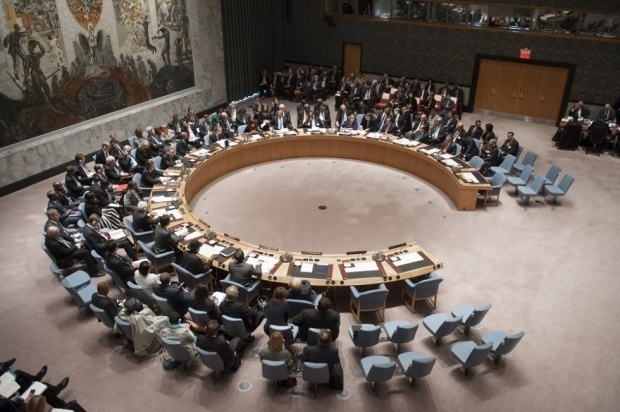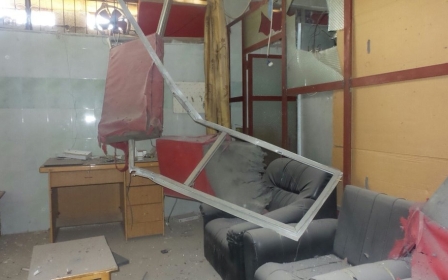Syria, Yemen hospital attacks spark new UN resolution

Five non-permanent members in the UN Security Council are working on a new draft resolution to demand a halt to attacks on hospitals and medical facilities in Syria, Yemen and other war zones, diplomats said on Wednesday.
Egypt, Japan, Spain, New Zealand and Uruguay have coalesced on the measure that would reaffirm that such attacks violate international law and would call for perpetrators to be held accountable.
"Given the increase of attacks, it would be timely to have a text that holds up international law, re-states respect for medical workers and sends a message about health care in armed conflict," said New Zealand's UN mission spokeswoman Nicola Garvey.
The United Nations has raised alarm over the targeting of medical workers and hospitals in conflict zones, in particular in Syria, Yemen and Afghanistan.
Just three weeks ago, at least three people were killed and six wounded in an air raid on a field hospital in southern Syria supported by Doctors Without Borders (MSF).
"The strike on Tafas field hospital, some 12km from the Jordanian border, took place on the night of 5 February. It caused partial damage to the hospital building, and put its heavily-used ambulance service out of action," MSF said in a statement.
A nurse was among those injured, it added.
"The hospital is the latest medical facility to be hit in a series of air strikes in southern Syria, which have been escalating over the past two months," it said, without specifying who was behind the strikes.
In December, air strikes from the Saudi-led coalition targeted a MSF mobile clinic.
This was not the first time that an MSF-run clinic has been targeted. On 27 October, a hospital in Saada, Yemen, was repeatedly targeted by coalition air strikes, injuring six people.
MSF spokesman Hassan Boucenine told Al Jazeera at the time that the attack “must have been deliberate” as the organisation regularly gives the coalition the coordinates of their facility.
“We give GPS positions, all the positions, of our hospital to the coalition head, and we renew them every month,” Boucenine said.
MSF condemned the air strike as a war crime and demanded an investigation.
Since May 2015, MSF has been providing emergency medications and surgical supplies to hospitals in the southern city of Taiz, which is currently under siege by Houthi rebels. Since October, the Al Houban area has also been receiving medical care.
An MSF hospital was also hit in Afghanistan by a US air strike in October, killing 42 people.
The US military unveiled the results of an internal investigation a month later, blaming human error.
MSF said they support the initiative by the five council members, which would not break new legal ground but would highlight the need to respect existing humanitarian law.
"Unless states come together and denounce these attacks, these kinds of attacks will somehow become normal, acceptable by-products of conflict," Cone told AFP.
"There really is a lack of accountability for these attacks," Cone added.
The draft resolution is being negotiated at a time when four of the five permanent council members - Britain, France, Russia and the United States - are backing parties in the Syria conflict.
The draft resolution could be presented to the 15-member council as early as next week, diplomats said.
Stay informed with MEE's newsletters
Sign up to get the latest alerts, insights and analysis, starting with Turkey Unpacked
Middle East Eye delivers independent and unrivalled coverage and analysis of the Middle East, North Africa and beyond. To learn more about republishing this content and the associated fees, please fill out this form. More about MEE can be found here.




